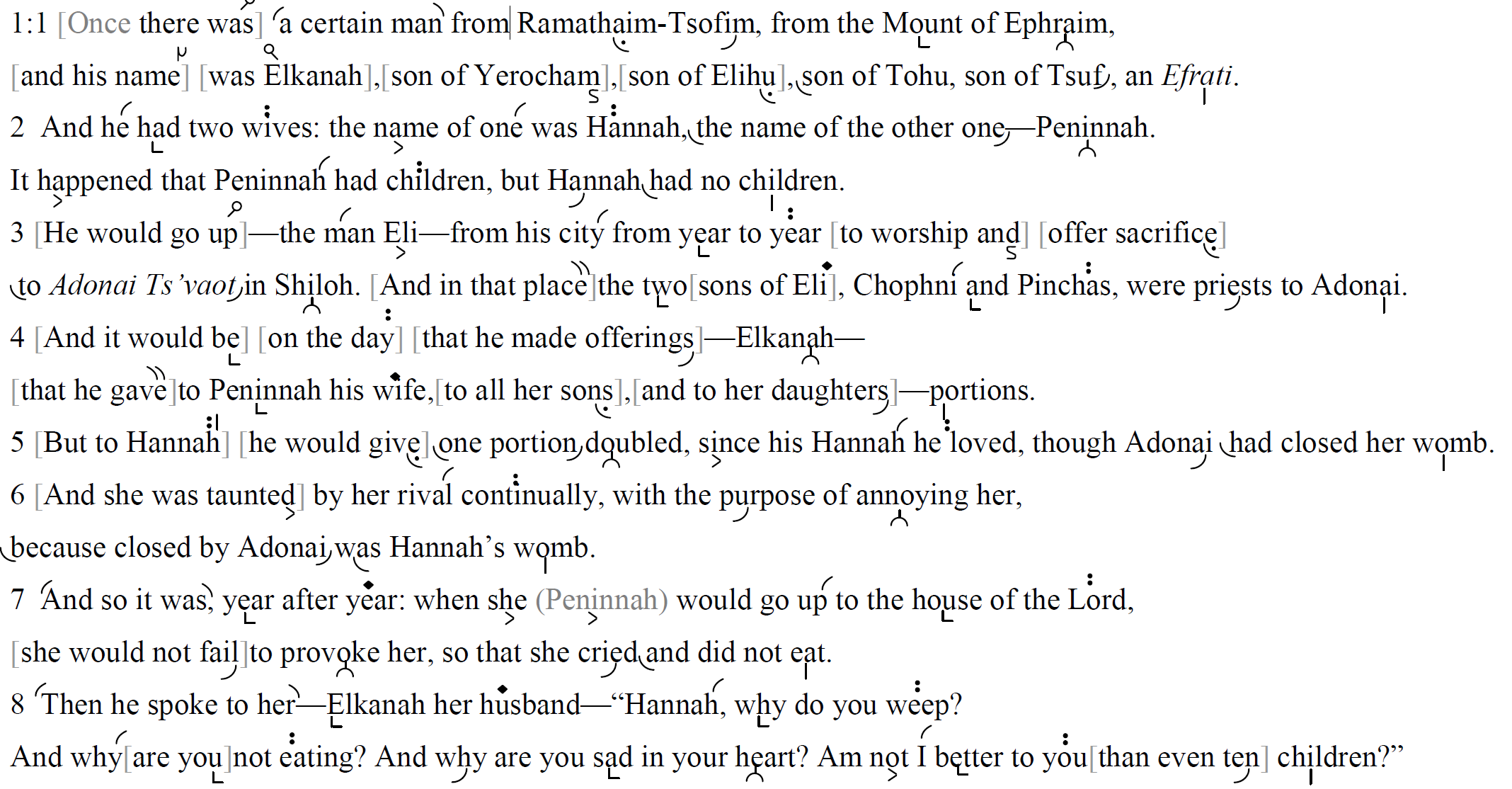DOWNLOAD:
PDF | ODT (with Hebrew)
PDF | ODT (sans Hebrew)
This is an English translation of the Haftarah reading for the second day of Rosh haShanah (Jeremiah 31:1-19), transtropilated (a term coined by Fellman to describe texts where the Masoretic cantillation has been applied to the translation). This translation of the Rosh Hashanah Haftarah reading is based on the translations of Aryeh Kaplan ‘The Living Torah’, the Stone Edition Tanach, The Artscroll Machzor, and The Jerusalem Bible. The cantillation is based on the Hebrew version chanted by Moshe Haschel in ‘Navigating the Bible II’.
Source

Recordings

“💬 Haftarah Reading for the second day of Rosh haShanah (Jeremiah 31:1-19): Chantable English translation with trōp, by Len Fellman” is shared through the Open Siddur Project with a Creative Commons Attribution-ShareAlike 4.0 International copyleft license.










Leave a Reply